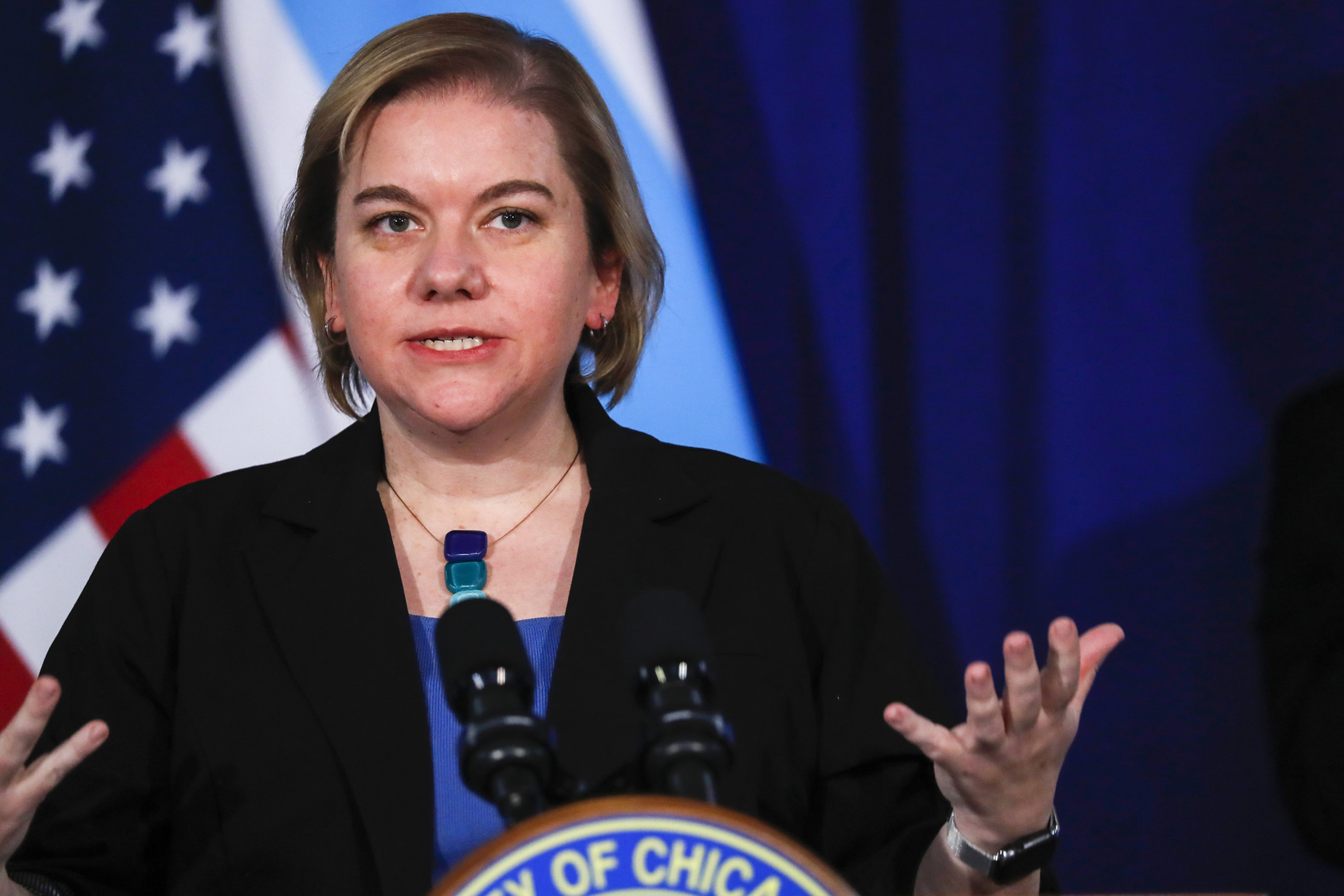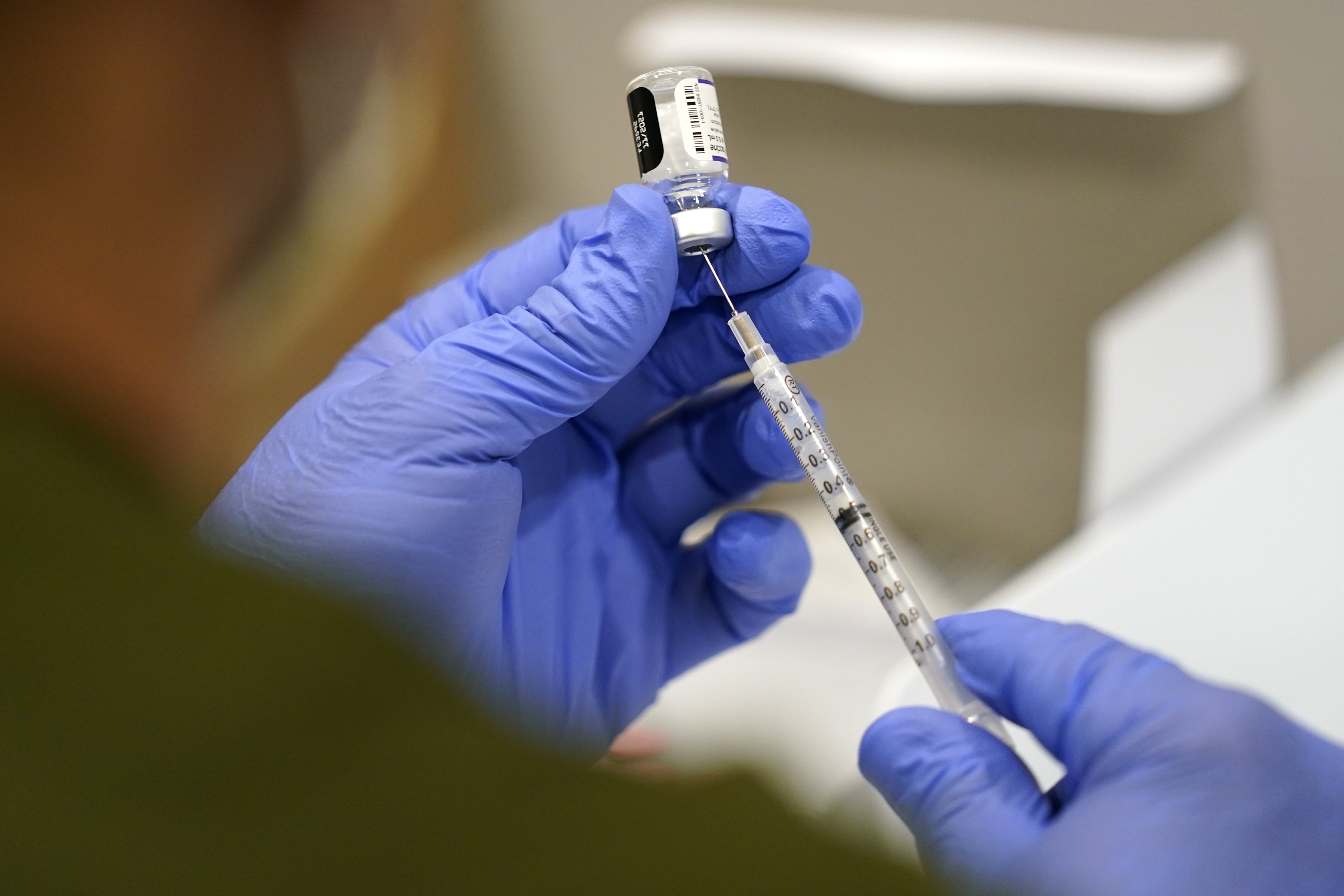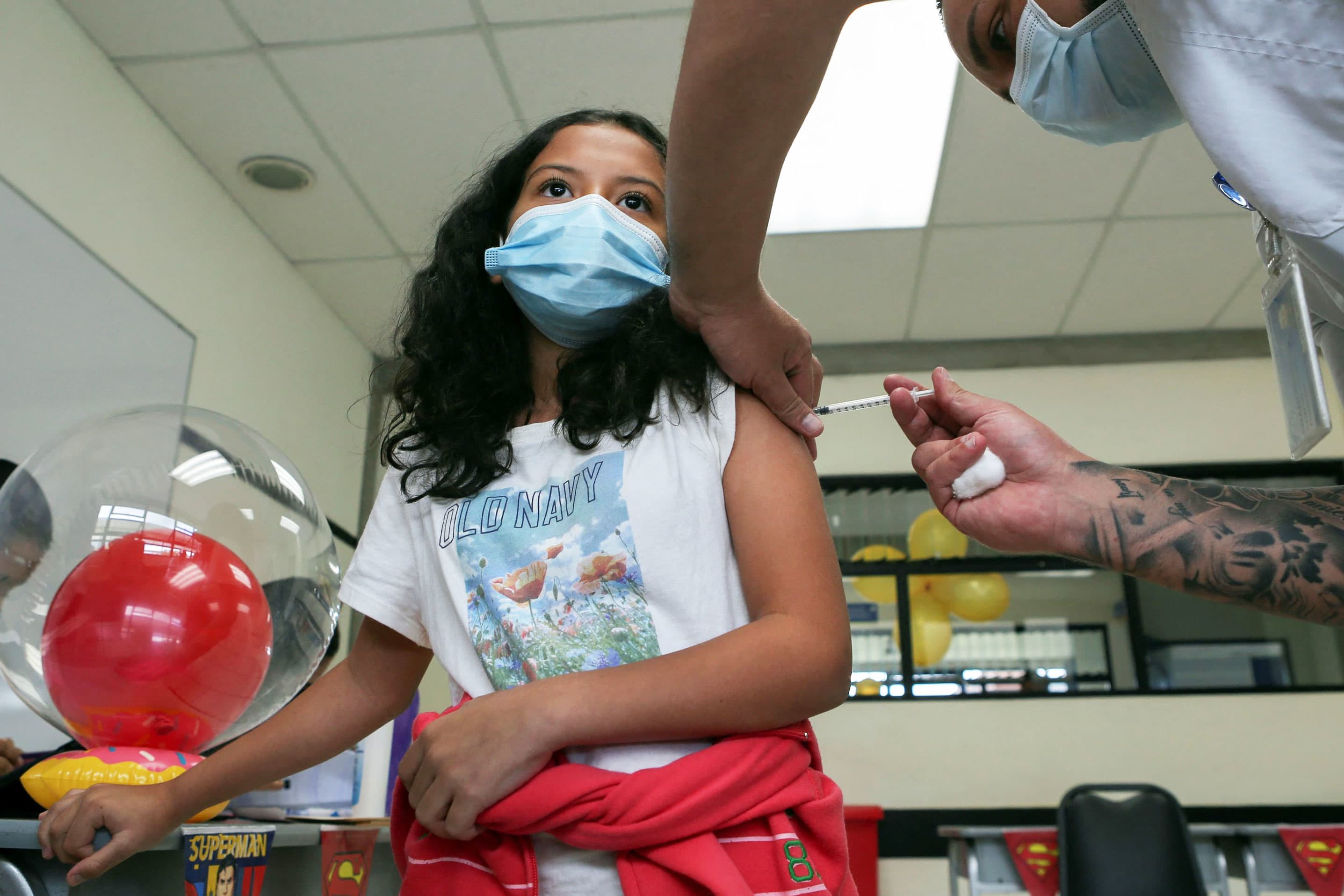Updated COVID-19 booster shots were cleared recently to include children as young as 5, and Illinois health officials are backing the breadth of access with their sights set on bolstering protection against newer strains of the virus.
The Food and Drug Administration and the Centers for Disease Control green lit the expansion of eligibility Wednesday. Dr. Sameer Vohra, the Director of the Illinois Department of Public Health, said in a statement Friday the new range of access comes at a critical time in Illinois.
According to IDPH data, 16 counties are rated at a "medium" COVID community level. Within the past week, 10,416 new cases of the virus were reported in the state, including 52 deaths. Following a national trend, the state also has seen "a sharp increase in severe childhood respiratory infections," according to Vohra.
"The updated bivalent COVID-19 booster, along with the flu vaccine, give parents two powerful tools to protect their children from severe illness and hospitalization," Vohra said. "With a surge in childhood respiratory illnesses already occurring, and the possibility of diseases like COVID-19 and the flu rising later this fall and winter, now is the best time to get these safe, effective vaccinations."
Feeling out of the loop? We'll catch you up on the Chicago news you need to know. Sign up for the weekly Chicago Catch-Up newsletter here.
The updated booster doses, which were tweaked to specifically target the omicron COVID variant and now-dominant highly contagious subvariants, originally rolled out in September. Officials have recommended that eligible community members should receive their booster shots prior to Halloween, in an effort to provide extra protection heading into the winter and upcoming holidays.
The shots come as Dr. Allison Arwady, Chicago Department of Public Health commissioner, expressed concern earlier this week for the upcoming flu season, saying that “all signs are pointing” to dramatic increases in cases and hospitalizations related to the influenza virus.
“The southern hemisphere has had a very bad flu season during their winter. Australia is coming off the worst flu season they’ve had in five years, with levels much higher than they’ve seen in either previous year,” Arwady said during a Facebook live. “All signs point to this being quite a bad flu season, and my worry is if we had a bad flu season on top of a bad COVID season, that really has the potential to threaten our healthcare systems.”
Arwady said that any surge in COVID cases could potentially cause serious strain on the health care system if flu season is bad and noted that her concern for kids is rising with RSV cases already spiking among younger populations.
“We’re already seeing a big surge in respiratory viruses broadly, even before flu has seriously kicked in,” she said. “We’re seeing our pediatric hospitals fill with kids getting admitted with RSV and other childhood viruses.”
In an interview Thursday with NBC 5's Lauren Petty, Arwady stressed that the new COVID booster being available for children as young as 5 is critical to preventing a possible surge the next few months.
"Everybody getting [the booster] is how we're going to hopefully stay out of trouble here this fall and winter," she said.
With eligibility expanded to kids, Arwady recommended everyone 5 and over get the new booster shot, saying that the recommended time frame is 6 months after your most recent booster.
Arwady also said she expects shots to begin in the Chicago area as early as next week.
"We are planning to start Monday, assuming there are no issues with shipping," Arwady said. "Your pharmacy, your doctor's office is authorized to now start giving it to those 5 and up."
As the cold weather picks up, Arwady stressed the importance of staying healthy ahead of the holidays, saying "You can get your COVID vaccine and your flu vaccine, and get one in each arm if you want. It's more important than ever to do this."
Here's what we currently know about the new shots available for children:
Which Shots Can Children Receive and Who is Eligible?
The FDA authorized Pfizer's bivalent shots Wednesday for elementary school-age kids, or those between the ages of 5 and 11 years old, and a version from rival Moderna for those as young as 6.
The CDC, which recommends how vaccines are used, also signed off hours later.
Only people who’ve gotten their initial vaccinations -- with any of the original-formula versions -- qualify for an updated booster. The booster can only be administered at least two months following completion of primary or booster vaccination in children, the FDA stated.
Less than a third of 5- to 11-year-olds have had their two primary doses and thus would qualify for the new booster.
When Could Shots Begin?
Pfizer said it could ship up to 6 million kid-sized doses within a week of authorization, in addition to ongoing shipments of adult-sized doses.
"My guess is that the earliest would be potentially next week or maybe the week after that we will have bivalent vaccines available for 5- to-11-year-olds," Chicago Department of Public Health Commissioner Dr. Allison Arwady said Tuesday, prior to authorization.
Is the Dosage Different for Children?
This age group will get kid-size doses of the new omicron-targeting booster — and they can receive it at least two months after their last dose, whether that was their primary vaccination series or an earlier booster, the FDA said.
For the updated booster made by Pfizer and its partner BioNTech, 5- to 11-year-olds would get a third of the dose that anyone 12 and older already receives.
Until now, Moderna’s updated booster was cleared only for adults. FDA just expanded that adult bivalent dosage to 12- to 17-year-olds, and authorized half the dose for kids ages 6 to 11.
Are There Any Safety Concerns?
The updated boosters are “extremely important” for keeping kids healthy and in school, said Dr. Jason Newland, a pediatric infectious disease specialist at Washington University in St. Louis.
Parents should know “there is no concern from the safety perspective with the bivalent vaccines, whether Moderna or Pfizer,” Newland added.
How Are the Bivalent Shots Different?
Experts say the updated shots have an advantage: They contain half the recipe that targeted the original coronavirus strain and half protection against the dominant BA.4 and BA.5 omicron versions.
These combination or “bivalent” boosters are designed to broaden immune defenses so that people are better protected against serious illness whether they encounter an omicron relative in the coming months -- or a different mutant that’s more like the original virus.
“We want to have the best of both worlds,” Pfizer’s Dr. Bill Gruber, a pediatrician, told The Associated Press. He hopes the updated shots will “re-energize interest in protecting children for the winter.”
Why Should Kids Get It?
"Since children have gone back to school in person and people are resuming pre-pandemic behaviors and activities, there is the potential for increased risk of exposure to the virus that causes COVID-19. Vaccination remains the most effective measure to prevent the severe consequences of COVID-19, including hospitalization and death,” Dr. Peter Marks, FDA’s vaccine chief, said in a statement. “While it has largely been the case that COVID-19 tends to be less severe in children than adults, as the various waves of COVID-19 have occurred, more children have gotten sick with the disease and have been hospitalized. Children may also experience long-term effects, even following initially mild disease. We encourage parents to consider primary vaccination for children and follow-up with an updated booster dose when eligible.”
How Much Protection Do the Shots Give?
Exactly how much protection does an updated COVID-19 booster shot offer? That’s hard to know. Pfizer and Moderna are starting studies in young children.
But the FDA cleared the COVID-19 booster tweaks without requiring human test results -- just like it approves yearly changes to flu vaccines. That’s partly because both companies already had studied experimental shots tweaked to target prior COVID-19 variants, including an earlier omicron version, and found they safely revved up virus-fighting antibodies.
“It's clearly a better vaccine, an important upgrade from what we had before,” Jha said earlier this week.
Jha urged adults to get their updated shot in October — like they get flu vaccinations — or at least well before holiday gatherings with high-risk family and friends. People who've recently had COVID-19 still need the booster but can wait about three months, he added.
What About Children Under 5?
As for even younger tots, first vaccinations didn’t open for the under-5 age group until mid-June -- and it will be several more months before regulators decide if they’ll also need a booster using the updated recipe.




